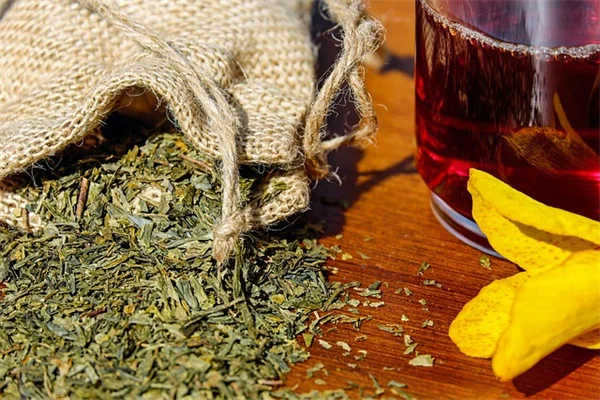Can coffee really help prevent type 2 diabetes? The answer is yes - and science now shows us exactly how it works! A groundbreaking new study reveals that drinking just one extra cup of coffee daily can reduce your diabetes risk by 4-6%. We're not just talking correlation here - researchers actually measured the anti-inflammatory effects in coffee drinkers' blood work.Here's what you need to know: your morning brew does more than wake you up. It's quietly fighting inflammation and balancing key hormones like adiponectin that regulate blood sugar. I've dug into the research (tracking over 150,000 people for 13 years!) to break down how this works in plain English. Whether you're a three-cups-a-day person or just enjoy the occasional latte, you'll want to understand these findings.The best part? You don't need to become some extreme coffee addict to benefit. The sweet spot seems to be that extra daily cup, especially if it's black, filtered, or espresso. But before you start mainlining coffee, let's look at the science behind why this works and how to make it part of your healthy lifestyle.
E.g. :Japan's STSS Outbreak: 5 Shocking Facts About the Deadly Strep Infection
- 1、Your Morning Cup Might Be a Diabetes Fighter
- 2、The Science Behind the Beans
- 3、Smart Coffee Drinking 101
- 4、Making It Work for You
- 5、The Future of Coffee Research
- 6、The Hidden Perks in Your Coffee Cup
- 7、Coffee Around the World
- 8、Beyond the Beans
- 9、Your Coffee, Your Way
- 10、The Bigger Picture
- 11、FAQs
Your Morning Cup Might Be a Diabetes Fighter
That Daily Coffee Habit Could Pay Off
Guess what? Your morning coffee ritual might be doing more than just waking you up. A fresh study shows that adding one extra cup of joe daily could slash your type 2 diabetes risk by 4-6%. Now that's what I call a perk!
Researchers tracked over 150,000 coffee drinkers for up to 13 years, measuring everything from insulin resistance to inflammatory markers. The results? Coffee drinkers showed lower levels of troublemakers like CRP and leptin (those are inflammation markers), while boasting higher levels of helpful compounds like adiponectin. Think of it as your body's natural defense team getting a caffeine boost!
How Coffee Works Its Magic
Ever wonder why your daily brew might help? Here's the scoop: coffee appears to calm inflammation while giving your hormones a helpful nudge. Dr. Marilyn Tan, an endocrine specialist (though not involved in this study), puts it perfectly: "Coffee's anti-inflammatory effects could explain its blood sugar benefits."
Let me break it down for you. When researchers checked blood samples, they found coffee drinkers had:
- Lower CRP levels (that's your inflammation alarm system)
- Better adiponectin levels (your natural blood sugar regulator)
- Improved insulin sensitivity (your body's sugar processing power)
The Science Behind the Beans
 Photos provided by pixabay
Photos provided by pixabay
What the Numbers Tell Us
Check out this eye-opening comparison:
| Coffee Consumption | Diabetes Risk Reduction | Key Benefit |
|---|---|---|
| 1 extra cup/day | 4-6% lower risk | Improved inflammation markers |
| Regular drinkers | Up to 30% lower risk* | Better insulin sensitivity |
*Based on multiple studies over time
Now here's a question you might be asking: "Does this mean I should start drinking coffee if I don't already?" Not necessarily. While the findings are promising, coffee isn't a magic bullet. The researchers emphasize that existing coffee drinkers seem to get the benefits without needing to increase their intake dramatically.
The Hormone Connection
Your coffee might be quietly influencing your hormones more than you realize. That adiponectin we mentioned? It's like your body's natural blood sugar supervisor. When levels are good, your cells listen better to insulin's instructions. Leptin, another key player, helps regulate appetite and metabolism.
Here's a fun fact: the study found these positive changes even after accounting for other lifestyle factors. So while your morning run helps, that accompanying cup of coffee might be giving you an extra edge!
Smart Coffee Drinking 101
Choosing Your Brew Wisely
Not all coffee drinks are created equal. That fancy caramel macchiato with extra whipped cream? Probably not doing your blood sugar any favors. The study showed the clearest benefits came from:
- Black coffee
- Filtered coffee
- Espresso
Dr. Tan reminds us: "The benefits don't extend to sugar-loaded coffee beverages." So if you're serious about diabetes prevention, skip the syrup and enjoy your brew straight up or with just a splash of milk.
 Photos provided by pixabay
Photos provided by pixabay
What the Numbers Tell Us
Here's another question you might have: "Can I just drink coffee instead of exercising?" Nice try! While coffee shows promise, it's no substitute for proven diabetes prevention strategies. The experts recommend combining your coffee habit with:
- Regular physical activity (even walking counts!)
- A balanced diet rich in whole foods
- Limited alcohol and no smoking
- Reduced sedentary time (stand up every hour!)
Think of coffee as your helpful sidekick in diabetes prevention, not the superhero. As Dr. Tan puts it, "There are better-studied ways to reduce diabetes risk, but coffee can be part of a healthy lifestyle."
Making It Work for You
Practical Tips for Coffee Lovers
If you're already a coffee drinker, here's how to maximize potential benefits:
- Stick to 3-4 cups daily (more isn't necessarily better)
- Choose quality beans - freshly ground if possible
- Enjoy it before noon if caffeine affects your sleep
- Skip the sugar or use natural sweeteners sparingly
Remember that scene in movies where detectives stare at a bulletin board full of connected clues? That's kind of how scientists view coffee research. Each new study adds another piece to the puzzle, but we're still seeing the full picture.
When Coffee Might Not Help
While the news is mostly positive, coffee isn't for everyone. Some people experience:
- Jitters or anxiety from caffeine
- Digestive issues
- Sleep disturbances
If you're sensitive to caffeine, try switching to decaf in the afternoon or exploring other anti-inflammatory drinks like green tea. The key is finding what works for your body.
The Future of Coffee Research
 Photos provided by pixabay
Photos provided by pixabay
What the Numbers Tell Us
Researchers are particularly curious about:
- How different brewing methods affect health benefits
- The role of coffee's natural compounds beyond caffeine
- Potential benefits for other metabolic conditions
As Andrew Odegaard, an epidemiology expert, notes: "We're getting closer to understanding coffee's mechanisms, but more evidence is needed." So while today's news is exciting, stay tuned for future discoveries!
Your Personal Coffee Strategy
At the end of the day (or should I say, at the start of your morning?), the decision comes down to personal preference and tolerance. If you enjoy coffee and it doesn't cause issues, this research suggests your habit might be doing more good than you thought.
Just remember - whether you're a die-hard espresso fan or an occasional coffee drinker, the foundation of diabetes prevention remains a balanced lifestyle. So go ahead and savor that cup, then maybe take a walk around the block. Your body will thank you twice!
The Hidden Perks in Your Coffee Cup
More Than Just a Wake-Up Call
You know that warm, comforting feeling when you wrap your hands around your morning mug? Turns out, your body might be getting more than just comfort from that ritual. Recent studies suggest coffee could be your metabolic system's best friend, working behind the scenes like a tiny health superhero.
Let me paint you a picture: imagine your bloodstream after coffee consumption. Those coffee compounds are like little traffic cops, directing glucose where it needs to go more efficiently. The chlorogenic acids in coffee? They're slowing down carbohydrate absorption in your gut, giving your system more time to handle the sugar load. And here's something cool - even decaf seems to offer some of these benefits, which means it's not just about the caffeine!
The Gut Connection You Never Knew About
Here's something that might surprise you - your coffee habit could be feeding your gut buddies! Emerging research shows coffee increases beneficial gut bacteria diversity. Think of your microbiome as a bustling city, and coffee's the mayor bringing in new, helpful residents.
Now, let's get specific. One study found coffee drinkers had higher levels of:
- Bifidobacterium (helps with nutrient absorption)
- Lactobacillus (supports immune function)
- Faecalibacterium (reduces inflammation)
Coffee Around the World
Global Brewing Traditions and Health
Ever wonder how different cultures prepare their coffee and what that means for health? Let's take a quick world tour:
| Country | Traditional Brew | Unique Health Angle |
|---|---|---|
| Ethiopia | Spiced coffee with ginger/cardamom | Added anti-inflammatory spices |
| Turkey | Unfiltered boiled coffee | Higher antioxidant content |
| Vietnam | Egg coffee (yes, with egg yolk!) | Added protein slows sugar absorption |
Now here's a thought: "If unfiltered coffee has more antioxidants, should I switch to French press?" Well, it's a trade-off. While you get more beneficial compounds, unfiltered coffee also lets through cafestol, which can raise LDL cholesterol slightly. If heart health is a concern, filtered might be your better bet.
The Timing Factor
Your coffee clock matters more than you think. Drinking coffee right after waking up? Might not be ideal. Cortisol (your natural wake-up hormone) peaks in the morning, and adding caffeine then can lead to tolerance buildup.
Try this instead: wait 90 minutes after waking for your first cup. This gives your natural rhythms time to do their thing before the caffeine boost kicks in. And if you're sensitive to caffeine's effects, make noon your cutoff time - that gives your body plenty of hours to process it before bedtime.
Beyond the Beans
Other Unexpected Benefits
While we're talking diabetes prevention, coffee's resume is more impressive than you might realize. Regular coffee consumption has been linked to:
- Lower risk of Parkinson's disease
- Reduced depression symptoms
- Improved liver health markers
- Better workout endurance
It's like your coffee is multitasking - protecting your brain while helping your metabolism. Not bad for a humble bean!
The Dark Side of Your Cup
Let's be real - it's not all sunshine and antioxidants. Some people experience:
- Acid reflux from coffee's acidity
- Stained teeth (though this is mostly cosmetic)
- Increased bathroom trips (coffee is a mild diuretic)
If acidity bothers you, try cold brew - it's naturally lower in acid. And for teeth staining? Simple tricks like drinking water afterward or using a straw can help.
Your Coffee, Your Way
Personalizing Your Brew for Maximum Benefit
Here's where it gets fun - you can actually tweak your coffee routine to boost its health potential. Try these pro tips:
- Add a pinch of cinnamon (may help with blood sugar control)
- Choose organic when possible (fewer pesticide residues)
- Store beans properly (airtight container, away from light)
- Grind just before brewing (preserves antioxidants)
Think of it like this - you're not just making coffee, you're crafting a health elixir. Each small choice adds up to a better cup and potentially better benefits.
When to Rethink Your Habit
While we're celebrating coffee's potential, let's be honest - it's not for everyone. You might want to reconsider if you:
- Get shaky or anxious after drinking it
- Experience heart palpitations
- Have trouble sleeping even with early cutoff
Remember, there's no one-size-fits-all approach. Listen to your body - it's smarter than any study when it comes to what works for you.
The Bigger Picture
Coffee in Context of Overall Health
Here's something crucial to remember: no single food or drink makes or breaks your health. Coffee's potential benefits work best as part of an overall healthy pattern.
Imagine your health as a puzzle. Coffee might be one important piece, but you still need:
- Quality sleep
- Stress management
- Regular movement
- Nutrient-rich foods
It's the combination that creates real, lasting health benefits - not any single magic bullet.
Future Research Directions
Scientists are just scratching the surface of coffee's potential. Current studies are exploring:
- How coffee affects gut-brain communication
- Its role in longevity
- Personalized coffee recommendations based on genetics
One day, we might have coffee recommendations as tailored as workout plans! Until then, enjoy your cup knowing science continues to uncover its hidden benefits.
E.g. :Coffee and Lower Risk of Type 2 Diabetes: Arguments for a Causal ...
FAQs
Q: How much coffee do I need to drink to see diabetes prevention benefits?
A: The study found that adding just one extra cup per day was associated with 4-6% lower diabetes risk. But here's what's interesting - you don't need to go from zero to six cups overnight. The benefits appear to accumulate gradually. Most research suggests the sweet spot is 3-4 cups daily. I recommend starting with one quality cup if you're new to coffee, then gradually increasing if you enjoy it and tolerate it well. Remember, more isn't always better - excessive caffeine can cause jitters and sleep issues.
Q: Does the type of coffee matter for diabetes prevention?
A: Absolutely! The researchers found that filtered coffee and espresso showed the strongest protective effects. These brewing methods seem to preserve coffee's beneficial compounds best. On the flip side, sugar-loaded coffee drinks (think frappuccinos with whipped cream) might actually increase diabetes risk. If you want the health benefits, stick to black coffee or add just a splash of milk. As Dr. Tan noted in the study, "The benefits don't extend to coffee beverages packed with sugar and fat."
Q: How exactly does coffee lower diabetes risk?
A: Coffee works its magic in two main ways. First, it reduces inflammation - the study showed lower levels of inflammatory markers like CRP in coffee drinkers. Second, it positively affects hormones that regulate blood sugar, particularly adiponectin. Think of adiponectin as your body's natural blood sugar supervisor - when levels are good, your cells listen better to insulin. Coffee also appears to improve insulin sensitivity directly. It's like giving your metabolic system a helpful nudge with each cup!
Q: Can I just drink coffee instead of exercising to prevent diabetes?
A: Nice try, but no! While we're excited about coffee's benefits, it's not a magic bullet. As the researchers emphasize, coffee should complement - not replace - proven diabetes prevention strategies. You'll get the best results by combining your coffee habit with regular exercise (even walking counts!), a balanced diet, and other healthy habits. Think of coffee as your helpful sidekick in diabetes prevention rather than the superhero. As I always tell my readers, there's no substitute for moving your body and eating whole, nutritious foods.
Q: Should I start drinking coffee if I don't currently?
A: Not necessarily. While the findings are promising, coffee isn't for everyone. Some people experience jitters, digestive issues, or sleep problems from caffeine. If you don't currently drink coffee, you might want to try green tea instead - it also contains beneficial compounds. But if you're curious, start with one small cup in the morning and see how you feel. The key is listening to your body and finding what works for your unique system. Remember, there are many paths to good health!

